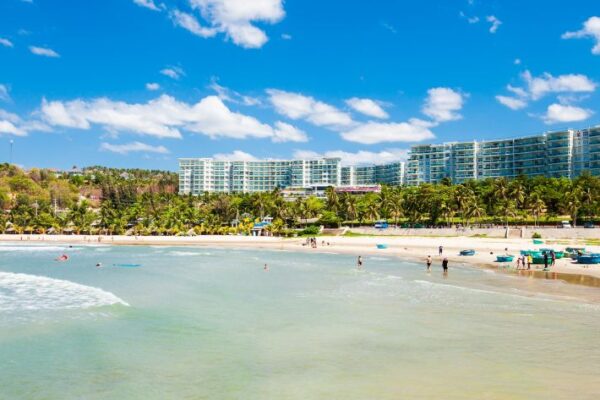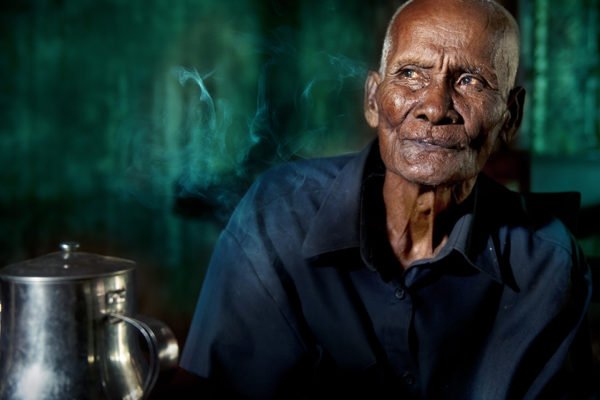Tipping Culture in Vietnam & Southeast Asia: A Smart Traveler’s Guide
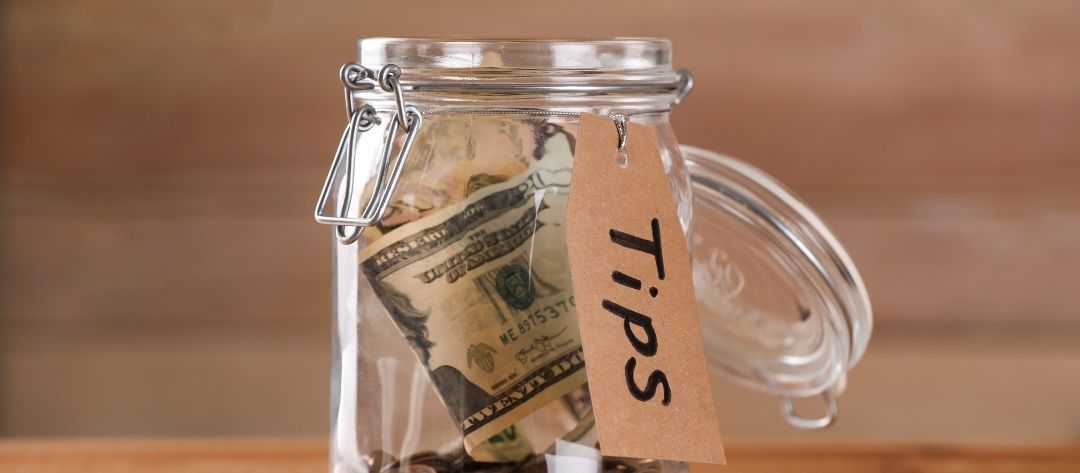
For many travelers, one of the most common questions before a trip is: Should I tip? In Vietnam and across Southeast Asia, tipping culture is not as clear-cut as in Western countries. While it is rarely mandatory, small gestures of appreciation are becoming more common in restaurants, hotels, and tour services, especially in tourist hubs. Understanding tipping in Vietnam and Southeast Asia helps you avoid awkward situations, show respect for local customs, and reward excellent service when it truly counts.
In this guide, we will walk you through when, where, and how much to tip across Vietnam, Thailand, Cambodia, Laos, Myanmar, Malaysia, Singapore, Indonesia, and the Philippines. With these smart traveler tips, you’ll feel confident about handling gratuities while keeping cultural awareness in mind.
Why Tipping Matters When Traveling Southeast Asia
Supports Local Workers
Across Southeast Asia, many service industry jobs pay modest wages by Western standards, making tips a crucial supplement. In Vietnam, for example, a 10% service charge at restaurants often goes to the owner rather than directly to servers.
A small additional tip can make a noticeable difference for staff like waiters, drivers, or hotel housekeeping. Even a modest amount is often deeply appreciated and can go a long way. Still, some locals caution that tipping should reward good service, not replace fair wages, to avoid driving up costs for everyone.
Shows Respect for Good Service
Tipping also serves as a way to show gratitude for warm hospitality. In countries like Cambodia and Thailand, it is voluntary, with many travelers tipping as a personal choice when they feel service has been exceptional. A small gratuity can carry significant meaning and is often met with genuine appreciation.
In Vietnam, tipping is not customary, and a polite “cám ơn” (thank you) or a smile may be equally valued. More than a financial act, tipping should be seen as an expression of respect for quality service, not a compulsory transaction.
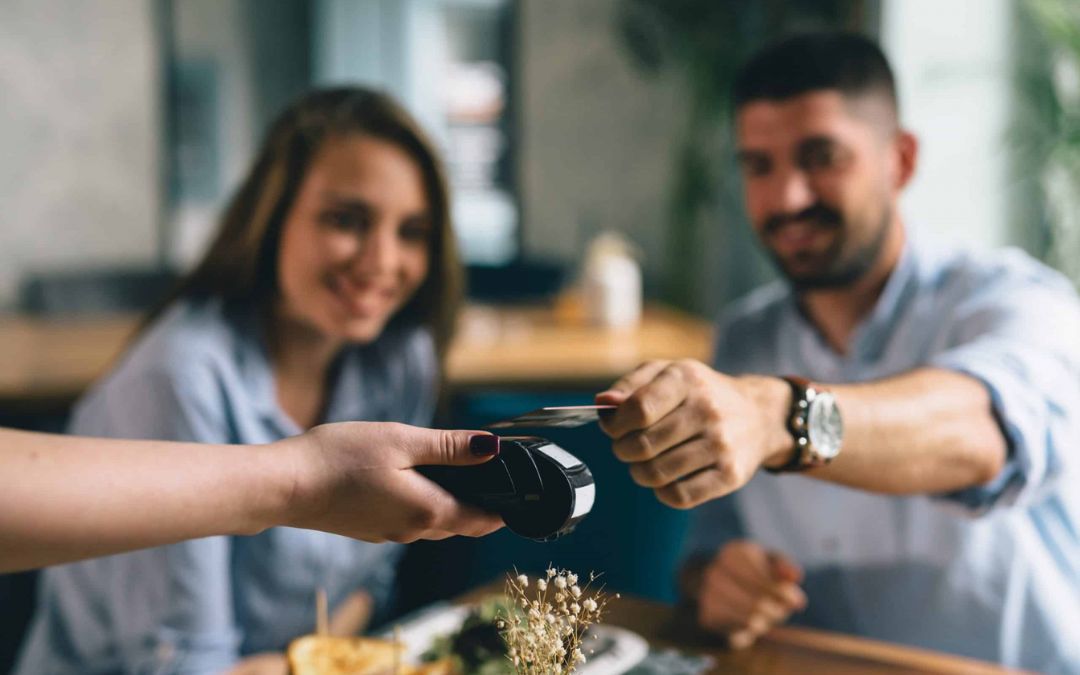
Tipping is never mandatory, but it shows gratitude.
Encourages Better Experiences for Travelers
Thoughtful tipping can help create better experiences for everyone. When tour guides, spa staff, or drivers feel acknowledged for their efforts, they are often motivated to maintain high standards, leading to more enjoyable journeys for future travelers. A simple tip can strengthen connections and reinforce a culture of excellence.
However, some travelers worry that tipping might create expectations or awkward situations if it becomes assumed rather than optional. In such cases, leaving a positive review online can also provide long-term benefits, rewarding service providers while helping fellow travelers discover quality experiences.
Where & How Much to Tip in Vietnam
Tipping culture in Vietnam is generally not expected or mandatory, especially at local eateries or street food stalls. However, with the growth of tourism, tipping has become more common in tourist-centric areas, hotels, and upscale venues. While it’s never an obligation, leaving a small gratuity is a thoughtful way to show appreciation for good service.
Always tip in Vietnamese Dong (VND), preferably in cash, and hand it directly to the service provider. Check your bill first, as many mid-to-high-end establishments already include a service charge. A polite smile or a simple “Cám ơn” (thank you) also goes a long way.
Restaurants & Cafés
In most local restaurants and cafés, tipping in Vietnam is not customary. Prices are fixed, and service charges may already be included. In mid-range or luxury venues, however, a gratuity of 5–10% of the total bill is warmly received, with some tourists offering 10–15% in busy cities.
Many travelers simply round up the bill and let staff keep the change, which is seen as a polite gesture. For outstanding service at specialty restaurants such as BBQ or seafood spots, tips of 100,000 VND per staff member are common, while in very high-end venues, it can reach 500,000–1,000,000 VND.
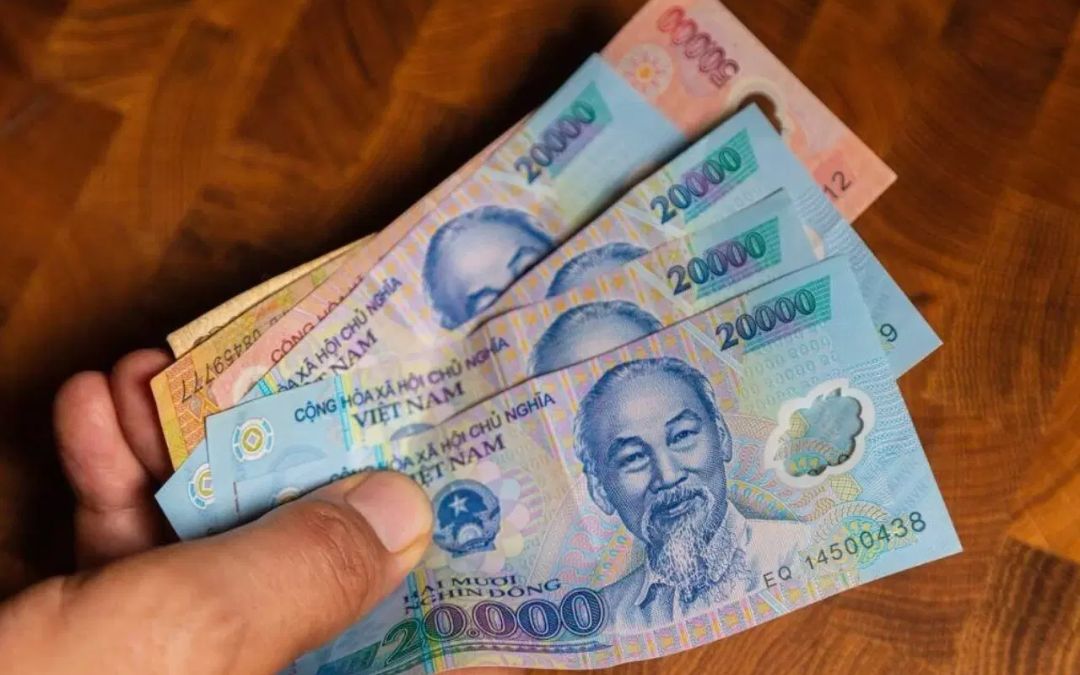
Many travelers round up bills at hotel cafés or bars.
Hotels
At hotels, tipping is never mandatory, but it is appreciated. Bell staff often receive 10,000–20,000 VND per bag, while housekeeping staff are commonly given 20,000–50,000 VND per day for excellent service.
Concierges may receive 50,000–100,000 VND if they arrange something complex like private transport or hard-to-get reservations. Valet staff are sometimes tipped 5,000–10,000 VND per service. In luxury hotels with higher service standards, guests may tip 10–20% overall across different staff.
Taxis, Grab & Deliveries
Taxi drivers do not expect tips, but rounding up the fare or adding 10,000–20,000 VND for help with luggage is courteous. Grab rides work similarly: tipping is not required, but you may round up or use the in-app tipping function.
For GrabFood deliveries, many locals round up the bill by 10,000 VND for small orders. For larger bills, a 10% tip (around 50,000–100,000 VND) is generous, especially in bad weather or if the driver delivers directly to your door.
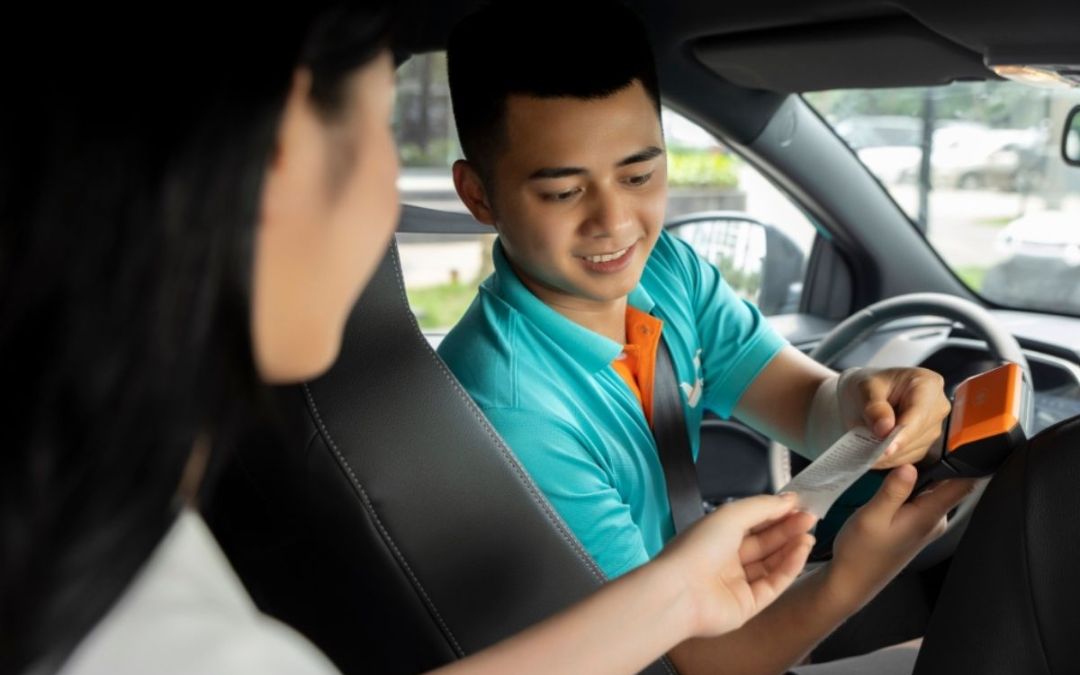
In Vietnam, taxi drivers don’t expect tips, but rounding up is common.
Spas & Salons
In spas and beauty salons, tipping in Vietnam is more common and often expected. A tip of 5–10% of the treatment price is standard, while 10–20% is typical for high-end establishments. For example, a 100,000 VND massage might come with a 10,000–15,000 VND tip.
At luxury spas, tips of 100,000–200,000 VND are appreciated. Always check your bill first, as service charges are sometimes included.
Tour Guides & Drivers
Tour guides rely heavily on tips, and it is customary to show appreciation after a tour. For day tours, the standard rate is 100,000–200,000 VND per day, but for private or longer tours, it can rise to 400,000–500,000 VND.
For short river cruises or local activities, 20,000–60,000 VND per person is enough. Private drivers also welcome tips, with 50,000–100,000 VND per day considered fair for good service.
Homestays & Rural Areas
In rural homestays and small family-run businesses, tipping is less expected, but even a small amount is deeply appreciated. These gestures often create memorable connections with the local community.
>> Read More: Vietnam Travel Requirements | Everything You Need To Know
Tipping Culture Across Southeast Asia: Country-by-Country Notes
Tipping customs vary across Southeast Asia. While not always expected, gratuities are increasingly common in tourist zones and higher-end establishments. Here’s what you need to know before you travel.
Thailand
Tipping in Thailand is a matter of personal choice. It is never obligatory, and you should not tip if the service is poor. Still, in busy tourist hubs like Bangkok, Phuket, or Chiang Mai, it is becoming more common.
At local food stalls or casual restaurants, tipping is unnecessary. In upscale venues or international restaurants, however, leaving around 10% of the bill is recommended. Bartenders in bars and nightclubs may be tipped 20 Baht for one or two drinks, or 50–100 Baht if you stay for the whole evening. Avoid leaving a one-baht coin, as it is considered insulting.
In hotels, porters usually receive 20–50 Baht per bag, while housekeeping may be given about 20 Baht per night. At spas, a tip of 10% shows appreciation for good service. For tours, the general recommendation is US$5–10 per day for guides. Taxi drivers do not expect tips, though rounding up the fare is a polite gesture on longer journeys.
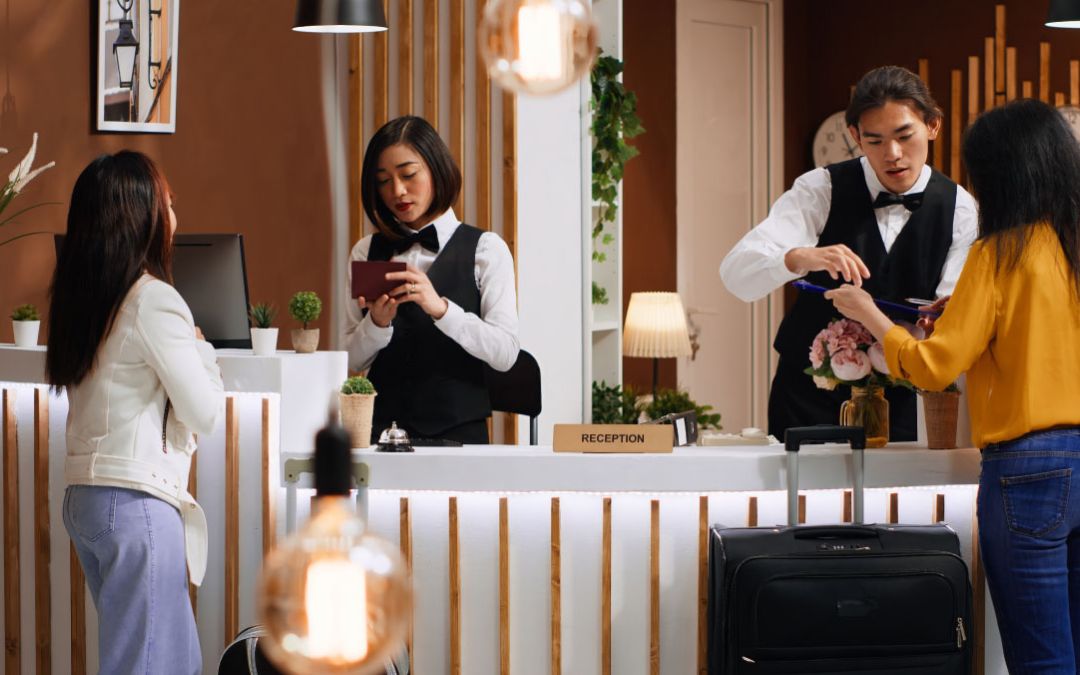
Upscale resorts in Thailand may include service, so tipping is optional.
Cambodia
Even though tipping in Cambodia is not the norm, it is increasingly practiced and valued. Visitors are free to decide the amount, using it as a way to show satisfaction.
At restaurants, a 5% tip is standard, though you can give up to 10% for excellent service if no service charge is included. Another simple practice is leaving US$1 per meal. For tour guides, the usual tip is US$2–4 per day, while drivers often receive US$1–2. Some travelers prefer giving US$3–5 per day for both guides and drivers on longer tours.
In hotels, bellhops and housekeeping staff are commonly tipped US$1–2 per bag or per day. Taxis generally do not require tipping, but rounding up the fare or adding US$1 is appreciated.
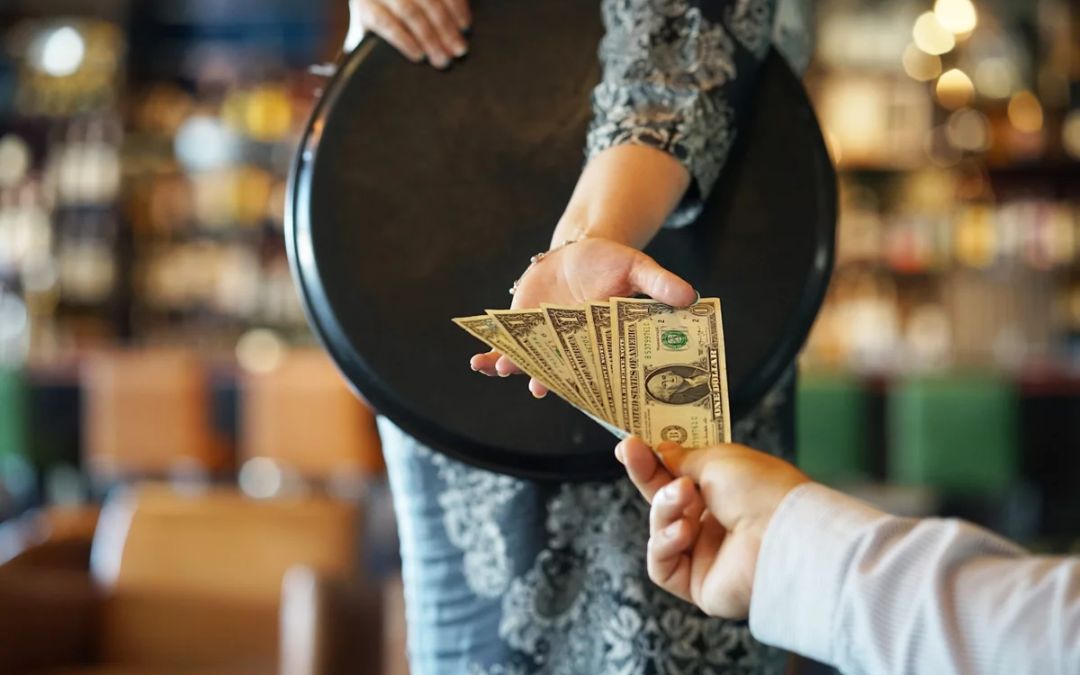
In Cambodia, restaurant staff are happy with a little extra.
Laos
Tipping in Laos is still rare, particularly outside of tourist centers. However, in Westernized establishments that cater to travelers, it has become more expected.
At mid-range local restaurants, tipping is not the norm. In luxury restaurants in Vientiane or Luang Prabang, leaving around 10% is customary. For guides, a gratuity of US$2–4 per day is appropriate, while drivers usually do not receive tips unless they provide exceptional service. Taxi fares are typically pre-negotiated, so no tip is required.
In hotels, staff generally do not expect tips, though small amounts for outstanding assistance—such as carrying luggage or arranging special requests—are always welcome.
>> Read more: Laos Travel Requirements Explained – Entry, Visas & Safety Tips
Myanmar
In Myanmar, tipping is not expected, but small tokens of appreciation are happily received.
At restaurants, it is common to round up the bill rather than leave a fixed percentage. Hotel staff may receive US$1–2, especially porters and housekeepers. While locals rarely tip taxi drivers, foreigners sometimes round up the fare for convenience. At spas and tourist services, leaving a modest gratuity shows appreciation but is never required.
Malaysia & Singapore
In Malaysia, most restaurants and hotels already add a 10% service charge to the bill, so additional tipping is not necessary. If the service is exceptional, locals and tourists alike sometimes leave a small extra gratuity, but it is by no means expected. Taxi drivers and ride-hailing services also do not expect tips, though rounding up fares is a simple courtesy.
In Singapore, tipping is generally not customary and, in many cases, discouraged. Most establishments already include a 10% service charge. At high-end hotels, international guests may choose to leave a little extra for porters or housekeeping, but tipping in restaurants, bars, or taxis is not the norm. In fact, some places may even politely refuse tips.
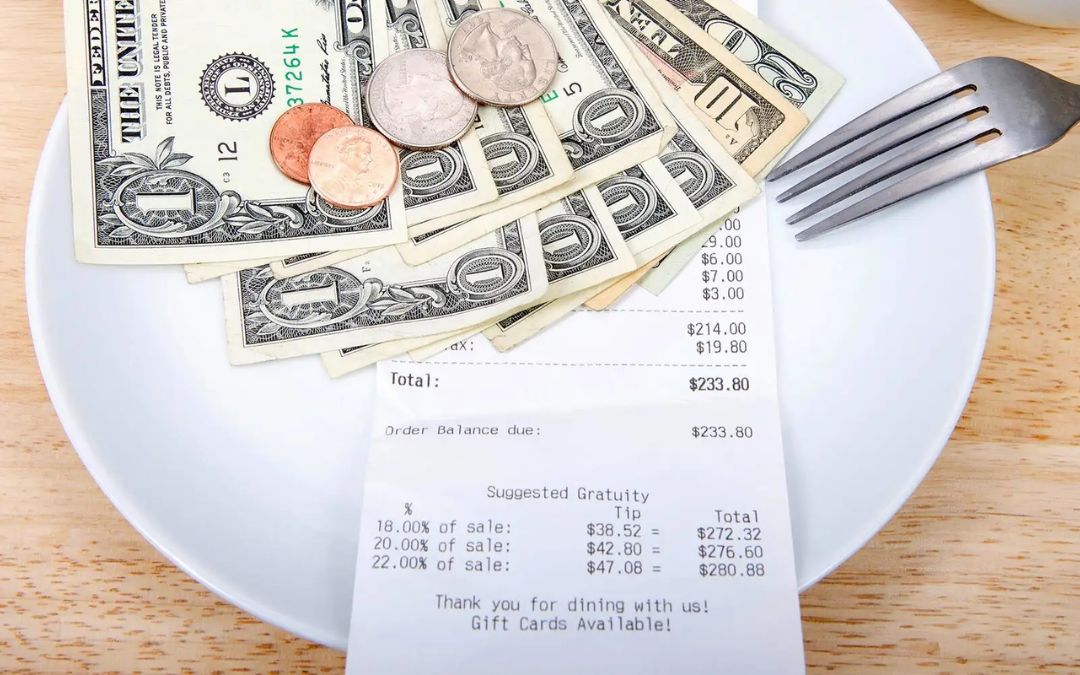
In Singapore, service charge is included, so tipping isn’t common.
Indonesia
In Indonesia, tipping is becoming more common, especially in areas like Bali where tourism dominates. At restaurants, a 5–10% tip is appreciated if a service charge is not already added to the bill. Hotel staff typically receive around IDR 10,000–20,000, given to porters or housekeeping.
Drivers and guides do not expect tips, but rounding up fares is standard practice, particularly for airport transfers or day trips. For longer tours, leaving a small additional tip for guides is considered thoughtful.
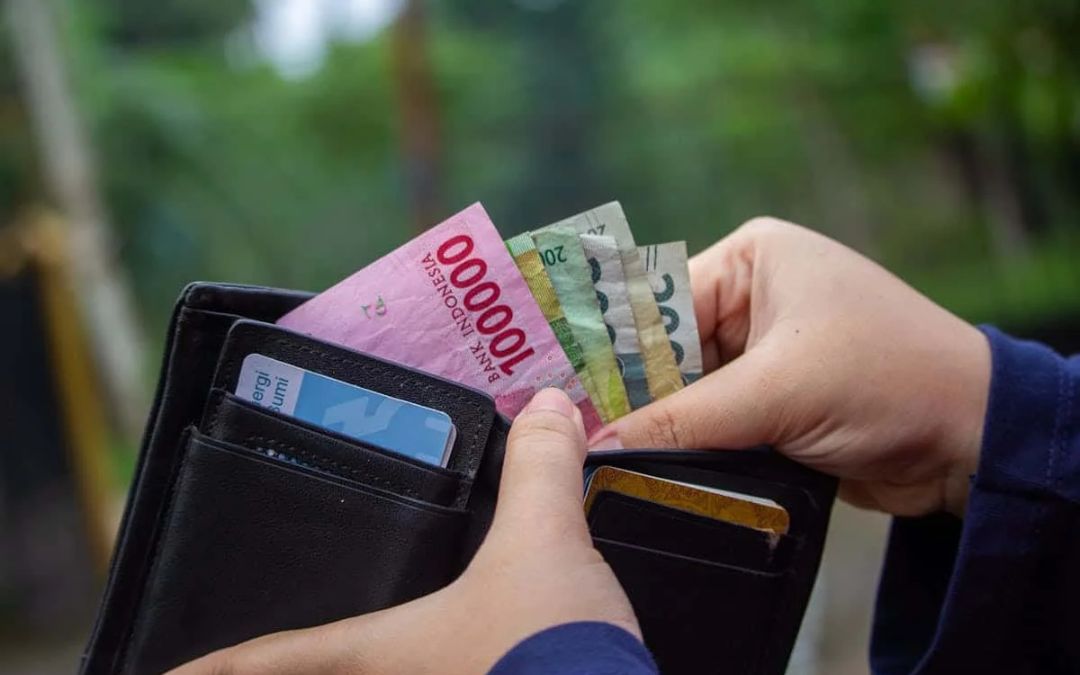
Indonesian resort staff welcome tips for attentive service.
Philippines
In the Philippines, tipping is more widespread, especially in major cities and tourist areas. Restaurants often include a service charge, but when they don’t, leaving 5–10% of the bill is customary.
Hotel staff such as porters and cleaners usually receive PHP 20–50 for their service. Taxi drivers generally do not expect tips, but rounding up the fare is both common and appreciated. For longer rides or extra assistance with luggage, a small additional tip shows gratitude.
Smart Traveler Tips for Tipping in Southeast Asia
Before you start tipping across Southeast Asia, keep in mind a few practical habits that will make the experience easier, more respectful, and more sustainable:
- Carry small local notes or clean USD when traveling across borders, but always tip in the local currency when possible.
- Keep small denominations handy for easy tipping of porters, drivers, and service staff. Be careful with similar-looking bills, such as the 20,000 VND and 500,000 VND notes in Vietnam, to avoid accidental over-tipping.
- Tip discreetly and directly, handing money to the staff member you want to thank. This ensures they personally receive it and avoids confusion with forgotten change.
- Avoid over-tipping in rural areas, as it may set unsustainable expectations for local communities. A modest gesture is often more appropriate and appreciated.
- Check your bill for service charges, as many mid-range and high-end restaurants or hotels already include a 10% charge or VAT. Only add an extra tip for exceptional service if a fee is already applied.
Smart Etiquette for Your Journey
Tipping culture in Southeast Asia is never mandatory, but small gestures go a long way in creating goodwill and leaving a positive impression. What matters most is showing respect and awareness of local customs—finding the balance between generosity and cultural sensitivity.
Ready to explore Southeast Asia with confidence? Share your travel wishes with Asia Pioneer Travel, and let us craft a personalized journey where every detail, from cultural etiquette to unforgettable experiences, is taken care of for you.


